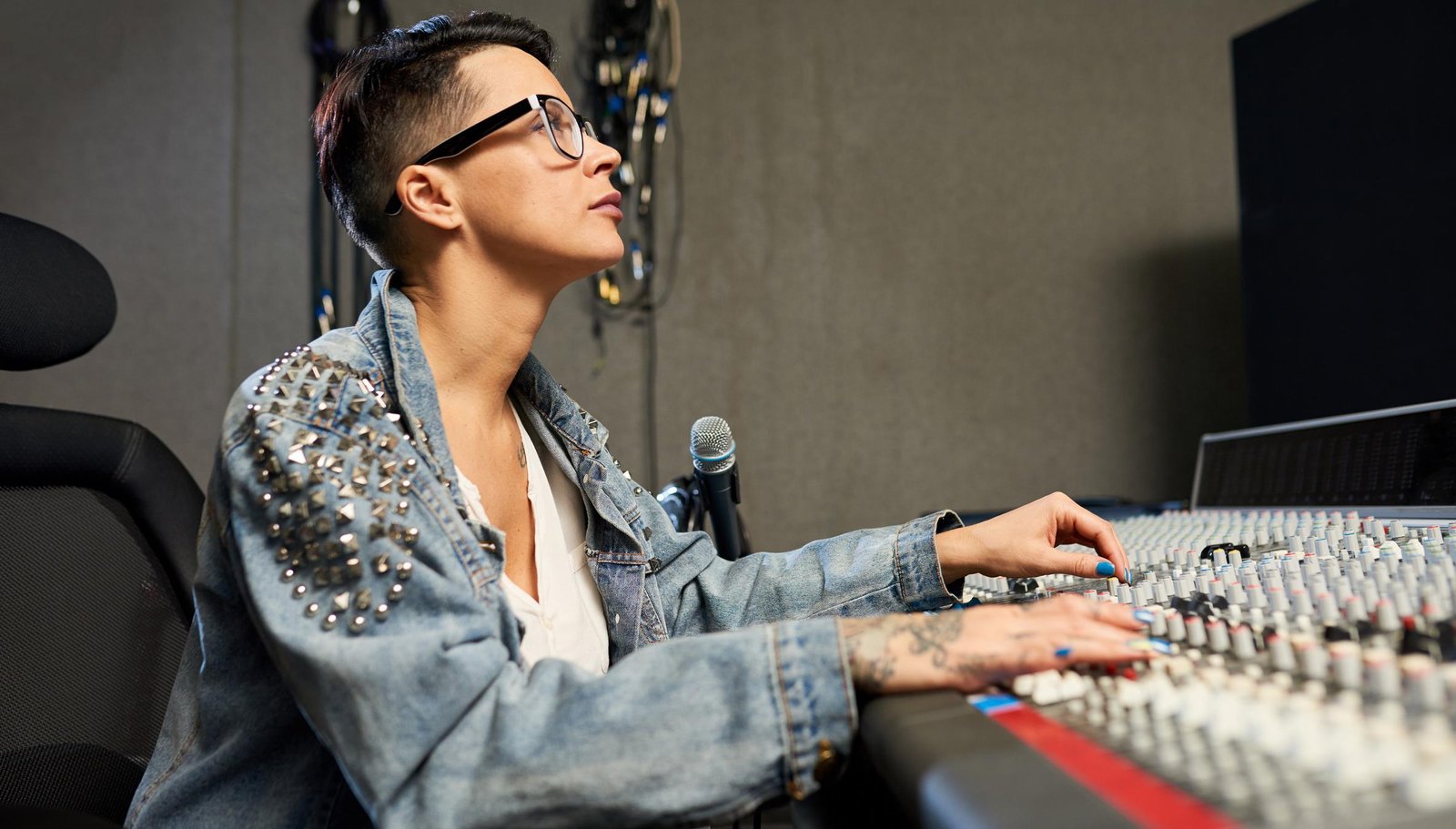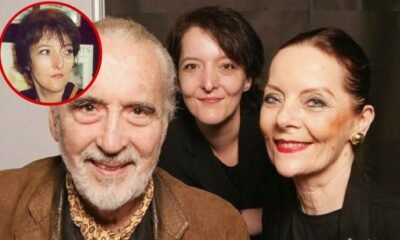Entertainment
How to Become an Electronic Music Artist in London: Top Music Schools, Sound Design Courses

London has long been a global music capital—from the punk of Camden to the techno of Shoreditch and the cinematic strings of Abbey Road. But in 2025, with music production software more accessible than ever and genres blurring by the hour, the question isn’t just “where to study?”—it’s also “how to build a career from day one.”
This guide explores the top music and sound engineering schools in London, how to start your journey into electronic music, what to expect in terms of cost and admissions, and how to balance your studies with real-world experience in a band or studio. Whether you’re aiming to become a producer, composer, DJ or sound designer, London offers some of the best launchpads in the world.
Best Music and Sound Engineering Schools in London (2025 Edition)
Point Blank Music School (Hoxton)
One of the most reputable names in electronic music education, Point Blank offers both full-time degrees and short professional courses in music production, DJing, sound engineering, and vocal performance. Its flagship degree in Music Production & Sound Engineering (validated by Middlesex University) includes modules in Ableton Live, Logic Pro, mixing and mastering, and even music business.
- Cost: £11,750/year for the 3-year BA
- Entry: Portfolio + interview (no strict A-level requirements)
- Extras: Industry mentoring, radio station access, and studio time with SSL boards
London College of Music (University of West London)
Their BMus (Hons) in Electronic Music Composition and Performance blends composition, synthesis, and live performance with academic rigour. Ideal for those wanting a hybrid of university experience and practical skills.
- Cost: £9,250/year (UK students), £13,250 (international)
- Entry: UCAS application, personal statement, and interview
- Best for: Students looking to combine theory, technology, and stage experience
Guildhall School of Music & Drama
Renowned for its classical training, Guildhall now offers Electronic & Produced Music as a standalone discipline. It’s perfect if you’re looking for elite performance training plus experimental production.
- Cost: £9,250/year (UK), up to £22,000 for non-UK
- Entry: Highly selective. Strong portfolio and live audition required
- Extras: Collaboration with jazz, drama, and film departments for real-world scoring
SAE Institute London
With campuses across the globe, SAE’s London hub focuses on Audio Production, Sound Design, and Game Audio. Its 2-year fast-track BA (Hons) in Audio Production is highly regarded in the film and gaming industries.
- Cost: £11,000–£12,000/year
- Entry: Flexible; often includes creative portfolio and motivation letter
- Best for: Those keen on sound for media, VR, and film
The Institute of Contemporary Music Performance (ICMP)
Located in Kilburn, ICMP combines music tech, songwriting, and business. Their Music Production & Sound Engineering BA puts equal focus on studio time and career strategy.
- Cost: £9,250/year (UK)
- Entry: Audition, interview and a short music tech portfolio
- Extras: One-on-one music business mentoring and a full in-house label for student releases
How to Start as an Electronic Music Artist in London
You don’t need to wait until your first class to begin. In fact, many of the best artists started making beats in their bedrooms before ever stepping into a studio. Here’s how to get going:
- Get the software: Learn your way around Ableton Live, Logic Pro, or FL Studio. Many schools use Ableton as their primary DAW.
- Take free or low-cost online courses: Before committing to a full BA, try a Skillshare or Coursera course to see what parts of sound design excite you most.
- Build your first EP: Start with loops and samples. Share on SoundCloud, Bandcamp, or Audius to test the waters.
- Go to events: Networking is half the game. Attend student showcases, open mics, and modular synth meetups (like the ones at Corsica Studios or The Pickle Factory).
- Make a basic press kit: Even in your early days, put together a few good tracks, an image, and a mini bio—these materials are useful for both applications and local bookings.
Balancing Study, Band Life & Creative Growth
Many students struggle to balance university life with performing, collaborating or even gigging around London. But it’s not only possible—it’s essential. You don’t become a music artist in a vacuum.
Here’s how to manage both worlds:
- Treat band practice like a seminar: Block out time each week. Use school studios when available to rehearse or record demos.
- Choose a course with flexibility: Some schools allow you to study 2 days/week and gig the rest.
- Sync projects with your band: Turn coursework into creative projects. For example, a sound design brief could be used for your band’s intro track or visuals.
- Use a planner or framework: It might sound corporate, but a personal development plan template can help you track both academic goals and your growth as an artist. List your deadlines, gigs, goals, and reflection points for the month.
How Much Does It All Cost?
Besides tuition, you’ll need to budget for:
| Item | Estimated Cost |
| Laptop (MacBook or equivalent) | £1,000–£2,000 |
| Music software (Ableton, plugins) | £300–£800 |
| Audio interface + headphones | £200–£500 |
| Rent in London (student housing) | £600–£1,000/mo |
| Live gig tickets (networking!) | £50–£100/mo |
| Extra masterclasses/workshops | £100–£200/year |
Some schools provide free studio hours or gear loans, but it’s wise to prepare for at least £1,500/year in equipment-related costs outside of tuition.
Becoming More Than Just a Student
Being a music student in London doesn’t just give you access to lectures—it puts you in one of the world’s most dynamic musical ecosystems. The best way to thrive isn’t just about picking the right course, but actively making music, meeting peers, and building a name for yourself across genres and communities.
Start recording. Collaborate endlessly. Get out of the campus bubble. And most of all—make every project, sound or gig part of your story. With the right balance of study and spontaneity, your time in London could be the launchpad not only to becoming an artist—but to staying one.
Read Also: drhomey interior design
-

 Celebrity11 months ago
Celebrity11 months agoWho Is Mallory Plotnik?: The Untold Story of Phil Wickham’s Wife
-

 Celebrity10 months ago
Celebrity10 months agoWho Is Allison Butler?: The Life and Influence of Kirk Herbstreit Wife
-

 Celebrity11 months ago
Celebrity11 months agoMeet Christina Erika Carandini Lee?: All You Need To Know Christopher Lee’s Daughter
-

 Celebrity10 months ago
Celebrity10 months agoWho Is Rebecca Sneed?: All You Need To Know About Lyle Menendez’s Wife
















